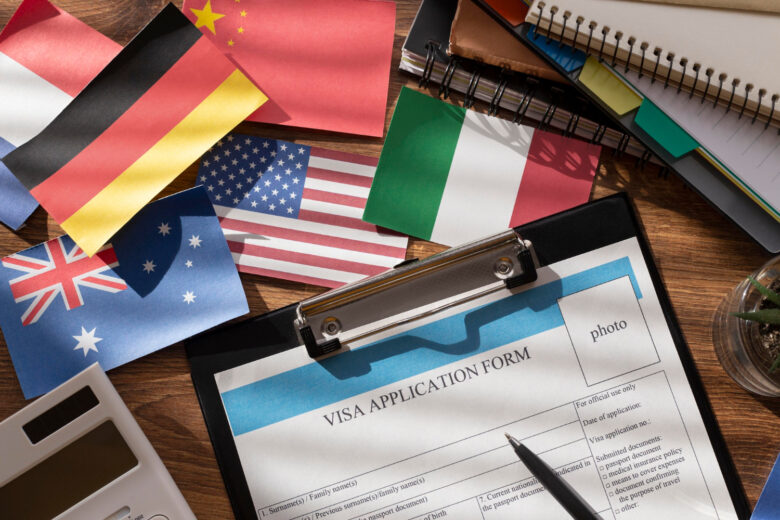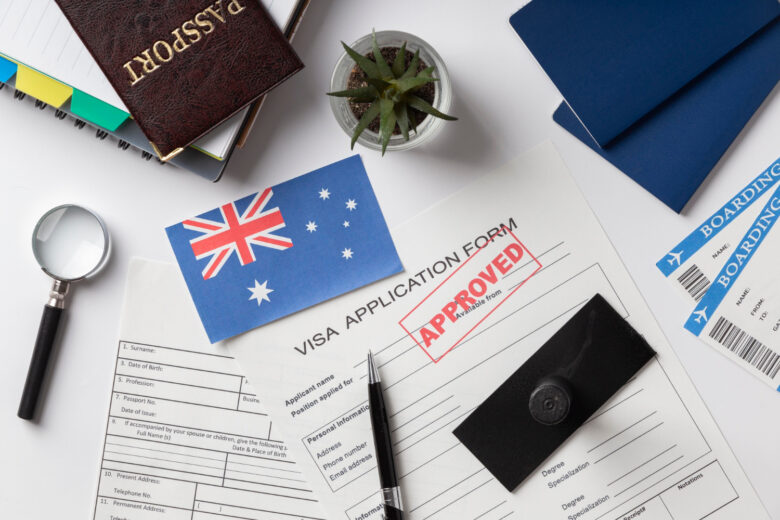The United Kingdom, with its rich history, diverse culture, and vibrant opportunities, has long been a destination of choice for individuals seeking to build new lives and pursue varied ambitions. However, navigating the intricacies of UK immigration policies can be a complex endeavor. This comprehensive guide aims to decode the step-by-step process for prospective immigrants, offering insights into the various visa categories, requirements, and key considerations, including the option of visa appeal.
Contents
Understanding the UK Immigration Landscape

Source: freepik.com
1. Visa Categories: A Spectrum of Options
The United Kingdom provides a diverse range of visa categories, each catering to specific purposes such as work, study, family reunification, and investment. A nuanced understanding of these categories is crucial for prospective immigrants, allowing them to navigate the complex immigration landscape effectively.
Tier 1 (Investor) Visa: Attracting Global Investors
The Tier 1 (Investor) Visa is tailored for high-net-worth individuals seeking to make substantial investments in the UK. This visa demands a significant financial commitment, emphasizing the applicant’s contribution to the country’s economy. Successful applicants not only gain the right to reside in the UK but also access a potential pathway to permanent residency.
Designed for skilled workers, the Tier 2 (General) Visa is often sponsored by UK employers. To qualify, applicants must secure a job offer and meet specific eligibility criteria related to skills, salary, and language proficiency. This visa not only facilitates the individual’s employment in the UK but also contributes to the growth of the national workforce.
Tier 4 (Student) Visa: Pursuing Education in the UK
The Tier 4 (Student) Visa caters to individuals aspiring to pursue education in the UK. Applicants must gain acceptance into a recognized UK educational institution and comply with study-related conditions. This category not only promotes academic excellence but also fosters cultural exchange and international collaboration within the educational landscape.
Family Visas: Reuniting with Loved Ones
Family visas encompass various categories, each serving the purpose of reuniting family members in the UK. Whether it’s spouse/partner visas, parent visas, or dependent child visas, these routes prioritize family reunification and necessitate providing evidence of relationships and financial capability. The family reunification aspect reflects the UK’s commitment to fostering strong familial ties and supporting diverse family structures.
Understanding the intricacies of each visa category empowers prospective immigrants to make informed decisions based on their unique circumstances and aspirations. Whether it’s contributing to the economy as an investor, joining the skilled workforce, pursuing educational opportunities, or reuniting with loved ones, the diverse visa options cater to a spectrum of individual goals and ambitions.

Source: freepik.com
2. Points-Based System: A Core Framework
At the heart of the UK’s immigration landscape is the points-based system, a comprehensive framework that evaluates and allocates points to applicants based on various factors. This system, introduced to streamline the immigration process and ensure a fair assessment of candidates, operates on several key pillars.
1. Skills and Qualifications:
The applicant’s skills and qualifications play a central role in the points-based system. Points are awarded based on the level of skill, expertise, and the relevance of qualifications to the intended job or academic pursuit.
2. Salary and Job Offer:
The offered salary is a critical factor in determining eligibility. Points are typically higher for higher salary brackets, reflecting the government’s emphasis on attracting skilled professionals who contribute significantly to the economy.
3. English Language Proficiency:
English language proficiency is a key consideration in the points system. Demonstrating a certain level of proficiency, often through recognized language tests, earns applicants valuable points. This ensures that individuals can effectively communicate and integrate into the English-speaking environment.
4. Shortage Occupations and Priority Areas:
The points system may prioritize individuals with skills in occupations facing shortages in the UK labor market. Applicants in these shortage occupations are awarded additional points, encouraging migration to areas where there is a demonstrable need for specific skills.
5. Education and Qualifications:
The level of education and the relevance of qualifications to the intended role are assessed for points. Higher educational achievements may result in additional points, reflecting the value placed on academic excellence.

Source: freepik.com
Step-by-Step Guide to UK Immigration
1. Research and Planning
- Identify Your Purpose:
Clearly define the purpose of your move – whether for work, study, family, or investment. Each category has specific requirements and criteria.
- Research Visa Categories:
Thoroughly research the available visa categories to determine the most suitable option for your circumstances.
2. Visa Application Process
- Prepare Documentation:
Compile all required documents, including proof of identity, financial statements, employment contracts, educational qualifications, and any additional documents specific to the chosen visa category.
- Online Application:
Most visa applications are submitted online.
- Biometrics and Supporting Documents:
Submit supporting documents as per the visa requirements.
3. Financial Considerations
- Application Fees:
Be aware of the applicable visa fees for your category. Fees vary based on factors such as visa duration and type.
- Financial Eligibility:
Ensure compliance with financial requirements, especially for visas that necessitate proof of funds or sponsorship.
4. Language Proficiency
- English Language Requirements:
For many visa categories, demonstrating English language proficiency is mandatory. This is typically assessed through standardized tests such as IELTS.
5. Points-Based System Assessment
- Point Calculation:
Understand how points are calculated based on the specific criteria of your chosen visa category. Ensure you meet the required threshold.
6. Waiting Period and Decision
- Processing Times:
Be aware of the average processing times for the chosen visa category. Factors such as complexity and volume of applications can influence processing duration.
- Decision Outcome:
Receive a decision on your visa application. If successful, obtain the necessary entry clearance or residence permit.
7. Arrival in the UK
- Compliance with Conditions:
Upon arrival in the UK, comply with the conditions outlined in your visa, including work restrictions, study obligations, or any other stipulations.

Source: freepik.com
Challenges and Considerations
1. Changing Policies: Stay Informed
- Policy Updates:
UK immigration policies are subject to change. Regularly check for updates to stay informed about any alterations that may impact your application.
2. Legal Assistance
- Seek Professional Advice:
Considering the complexity of immigration laws, seeking advice from immigration professionals or solicitors can enhance the likelihood of a successful application.
3. Cultural Adjustment
- Prepare for Culture Shock:
Understand the cultural nuances of the UK and be prepared for an adjustment period.
Visa Appeal Process
In cases where a visa application is rejected, there is an option for UK visa appeal. The appeal process involves presenting additional evidence, addressing any issues raised during the initial application, and making a case for reconsideration. It’s crucial to understand the grounds for appeal and adhere to the prescribed timelines.

Source: freepik.com
Decoding UK immigration policies is a multifaceted process that demands meticulous planning, adherence to regulations, and a comprehensive understanding of individual visa requirements. By following this step-by-step guide, staying attuned to updates, and being aware of the option for visa appeal, prospective immigrants can embark on their journey to the United Kingdom with greater confidence. Armed with the knowledge needed to navigate the complexities of the immigration landscape, individuals can make informed decisions and lay the foundation for a successful and fulfilling life in the UK.
